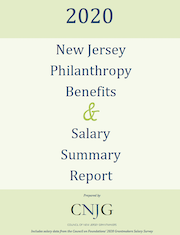Site Search
- resource provided by the Forum Network Knowledgebase.
Search Tip: Search with " " to find exact matches.
In March 2024, Governor Murphy signed into law significant reforms to the ways that New Jersey enforces municipal affordable housing obligations under the state Supreme Court Mount Laurel doctrine. The new law creates enhanced affordable housing opportunities for New Jersey’s low-and moderate-income households, while seeking to streamline the affordable housing development process by setting clear guidelines for determining housing obligations. It is expected to reduce legal costs and judicial involvement. Join Adam Gordon, Executive Director and Emily Devenney, Grants and Development Manager of the Fair Share Housing Center for a conversation about what this new legislation means for philanthropy.
Since the revival and improved enforcement of the Mount Laurel Doctrine in 2015, New Jersey has seen a considerable increase in affordable housing production. However, there remains a substantial shortage of affordable homes in the state, particularly for very low-income residents. The legislation aims to address this gap by ensuring that every municipality contributes its fair share of affordable housing.
Key features of the legislation include a streamlined process for determining affordable housing obligations, codification of methodology for calculating these obligations, increased transparency in the housing development process, and the repeal of the state Council on Affordable Housing (COAH). Additionally, the legislation prohibits wealthy towns from avoiding their housing obligations through regional contribution agreements.
Cost: Free for CNJG Members; $50 for Non Member Grantmakers
Adam Gordon is the Executive Director of FSHC and leads FSHC’s coordinated strategy of organizing, litigation, and policy development to advance racial, economic, and social integration throughout New Jersey and the United States. Since joining the organization in 2006, he has worked to implement the Mount Laurel Doctrine which has created over 70,000 affordable homes in historically exclusionary NJ communities, litigated the largest federal fair housing case in American history, and worked to make federal disaster recovery policy more equitable. Under his leadership FSHC has secured the passage of the first statewide Fair Chance in Housing Act to limit discriminatory tenant screening policies and a landmark $305 million fund to accelerate affordable housing development. Gordon holds a B.A. and J.D. from Yale University.
Emily Devenney joined Fair Share Housing Center as the Grants & Development Manager in January 2024. She comes with experience in fundraising and community organizing, and strong connections to South Jersey, where she was born and raised (and likely will never leave). Emily has a B.A. in Economics and a Masters of Public Policy from the University of Massachusetts Amherst and a Certificate in Fundraising from Villanova University.
Webinar Video
Six million immigrants in the US have jobs that could increase their risk of contracting the virus -- from physicians and home health aides to agriculture and food production workers. Another 6 million work in areas that have suffered major financial loss, including the restaurant and hospitality industry, in-home childcare, agriculture, and building services.
Yet, documented and undocumented immigrants are ineligible for federal relief funds and government-sponsored safety-net programs. Many “essential” workers lack health insurance. Language barriers often make getting services difficult. And, fear of repercussion if they test positive for COVID or uncertainty around immigrant policies prevent many immigrants from even seeking assistance.
During this webinar briefing, we will hear from Abel Rodriguez, Director for the Center on Immigration and Assistant Professor of Religion, Law, and Social Justice at Cabrini University and Sara Cullinane, Director of Make the Road New Jersey.
Topics will include:
• How immigrants and their families have been impacted by COVID, nationally and in our state.
• Supporting immigration policies and programs that advance the social and economic well-being of immigrant populations.
• Efforts in New Jersey communities to provide direct support, education, and other needed resources to immigrants during the pandemic.
Nearly 1 in 4 New Jersey residents is an immigrant. And despite their vital importance to this state and our country’s culture and economy, immigrants are often left out of programs and denied services that are critical for recovery. Join us for an important briefing on why your organization’s response to COVID must uplift immigrants and their families – now and for the future.
Cost: Free for CNJG Grantmakers. $50 for Non Member Grantmakers
Webinar Video
Resources gathered from our colleagues at other philanthropy-serving organizations, state nonprofit associations, and city, state, and federal governments.
Philanthropy Serving Organizations Resources
Candid: Funding Summary for Global Philanthropic Response
Center for Disaster Philanthropy
Disaster Philanthropy Playbook
Complex Humanitarian Emergencies: Philanthropy’s Role in Recovery Webinar - Held 2/13/2020
COVID-19 Coronavirus: How Philanthropy Can Respond Webinar - Held 3/5/2020
COVID-19: Past Epidemics and Vulnerability - Lessons for Funders Webinar and Webinar Slides - Held 3/26/2020
COVID-19: Making Effective Rapid Response Grants Webinar and Webinar Slides - Held 4/14/2020
COVID-19: Managing Multiple Disasters Amid the Pandemic Webinar - Held 4/28/2020
Report: Philanthropy and COVID-19 in the First Half of 2020 - May 2021
Report: Philanthropy and COVID-19 Measuring One Year of Giving - March 2021
Report: Philanthropy and COVID-19 Examining Two Years of Giving - May 2022
Center for High Impact Philanthropy: COVID-19 Pandemic: Resources
Council on Foundations
Philanthropy’s Response to Coronavirus Outbreak Resource Page
Sharing Approaches to COVID-19 Community Response Webinar and Webinar Slides - Held 3/12/2020
Funders: Sign the Council on Foundations’ Pledge to act with urgency, loosen restrictions, reduce what you ask of non-profits, contribute, communicate, and listen.
Exponent Philanthropy:
Resources for Lean Funders
Blog: How Lean Funders Are Responding to COVID-19
Funders Together to End Homelessness:
COVID-19 Response and System Redesign: Recommendations for Philanthropy to Support Solutions to End Homelessness
Grantmakers for Effective Organizations: Smarter Grantmaking Practices During—and Beyond—COVID-19
Minnesota Council on Foundations: Coronavirus Webinar and Webinar Slides - Held 3/4/2020
National Center for Family Philanthropy
COVID-19: Response and Recovery Resources
Family Philanthropy’s Response to COVID-19 Webinar - Held 3/27/2020
National Center for Responsive Philanthropy: Local Foundation Funding for Immigrant & Refugee Groups
Philanthropy New York
COVID-19 Updates & Resources
Preparing for COVID-19: Philanthropy’s Response in Times of Crisis Webinar - Held 3/12/2020
Philanthropy Network of Greater Philadelphia: Philanthropy’s Response to the Coronavirus
United Philanthropy Forum
3/12 Letter to Congress - Include Nonprofits in Coronavirus Package
3/18 Letter to Congress - Nonprofit Community COVID-19 Stimulus Letter
State Nonprofit Association Resources
New Jersey Center for Nonprofits: Resources for Non-Profits in Response to the COVID-19 (Coronavirus) Outbreak
1st Rapid Response Survey Report
2nd Rapid Response Survey Report
Washington Nonprofits: Open Letter to Funders
Government Resources
Center for Disease Control and Prevention: Coronavirus Disease 2019 (COVID-19)
City of Newark: News & Updates
Federal Emergency Management Agency: A Guide to the Disaster Declaration Process and Federal Disaster Assistance
NJ Department of Health: Up-to-date Information about the Coronavirus (COVID-19) in New Jersey
State of New Jersey: COVID-19 Information Hub
U.S. House of Representatives: House passes HR 6201: Families First Coronavirus Response Act
World Health Organization: Coronavirus disease (COVID-19) outbreak
Additional Resources
Condon O’Meara McGinty & Donnelly, LLP: Guidance for Private Foundations
Summer always brings to mind those great “summer reads.” This has been an “occasional series” of CNJG eNews during the summer, over the years. In addition to this year’s curated list – I’m thrilled to share recommendations from a few CNJG Board members and the CNJG team!
CNJG Board of Trustees’ Secretary, Maisha Simmons, Robert Wood Johnson Foundation, recommends Heather McGhee’s The Sum of Us: What Racism Costs Everyone and How we can Prosper Together. There’s also a podcast series, and the book has been adapted for young readers.
The Work: My Search for a Life that Matters by Wes Moore is the top pick from Board member, Jasmyne Beckford, The Prudential Foundation. Jasmyne reflects, this book helped her think about how she can live a life that creates impact for generations both personally and professionally.
CNJG Board member Justin Kiczek, F. M. Kirby Foundation, recently read Getting Beyond Better: How Social Entrepreneurship Works. “As our foundation holds both stewardship and entrepreneurship as core values, it helps me understand how social entrepreneurs start their journey and scale their solutions.”
In honor of Black Philanthropy Month this August, I’m excited to feature a few great reads created to inspire and inform your philanthropic journey. Thank you to Manager of Communications Shakirat Odunsi for curating this list:
- Madam C. J. Walker's Gospel of Giving: Black Women's Philanthropy during Jim Crow highlights Walker’s visionary approach to philanthropy and community-building, emphasizing the vital role of Black women’s giving in advancing social justice. Freeman’s work sheds light on how Walker’s philanthropy was an extension of her entrepreneurial spirit and commitment to racial and gender equality.
- Ford Foundation’s Darren Walker reimagines Andrew Carnegie’s vision of philanthropy for the modern era in From Generosity to Justice: A New Gospel of Wealth, urging philanthropists to go beyond charity and address systemic inequalities to foster justice and lasting change.
- Emergent Strategy: Shaping Change, Changing Worlds encourages readers to embrace adaptability and resilience by using emergent strategies – small-scale actions that create large-scale impact. Author adrienne maree brown challenges traditional models of organizing and invites us to envision a more just and equitable world through collaboration, creativity, and deep connections with others. It’s a guidebook for those seeking to shape the future and navigate the complexities of change.
- Isabel Wilkerson explores how entrenched hierarchies based on race and class impact every aspect of our lives in Caste: The Origins of Our Discontents. Through compelling narratives and meticulous research, she reveals how this hidden system continues to perpetuate inequality and injustice, challenging us to confront these deeply rooted structures and work toward true equality.
From the CNJG team, Director of Member Services Craig Weinrich is currently reading How We Give Now: A Philanthropic Guide for the Rest of Us by Lucy Bernholz. This book demonstrates that philanthropy is about much more than money. Bernholz posits that even giving our data willingly to companies is an act of philanthropy. This is a great intersection to the Spring Colloquium conversation around AI, and ongoing discussions about how we can expand our definition of philanthropy as guided by our Strategic Plan.
Chanika Svetvilas, Manager of Programs and Learning recommends Against Technoableism by Ashley Shew and Imagination A Manifesto by Ruha Benjamin. Not too long ago I read Four Thousand Weeks: Time Management for Mortals, which prompted me to really consider what each of us should focus on in our day-to-day work, and what we need to let go. It’s a practical, insightful guide that led to several “aha” moments. All three books challenge us to think very differently about our world and what’s possible.
And finally, a recently discovered read I’ve gifted to family and friends, All the Colors of Life by renowned artist Lisa Aisato; this will lift your spirits as you find yourself paging through it and experiencing it over and over again.

Happy Summer Reading!
On a different note, I hope you will join us at the Summer Joint Policy Forum – Nonprofit and Philanthropic Champions for New Jersey on August 13, at The Heldrich in New Brunswick. I look forward to seeing you there, and hearing what’s on your summer reading list!
Sincerely,
Theresa Jacks, President and CEO
Council of New Jersey Grantmakers
In this briefing on housing and homeless, you will hear about the changes of federal policy on housing and their impact in New Jersey, you will hear from a panel who will discuss the potential effects of state policy changes on homelessness and housing, including the administration of housing choice vouchers. Potential funding cuts can lead to staffing reductions on housing and homeless services. The uncertainty faced by agencies regarding their funding and the need for legal support can create fear and confusion among agencies in New Jersey. Panelists will discuss what funding strategies and ways to support grantees. At the state and local levels, there is also a need for funders to support policy advocacy and legal assistance.
Cost: Free for CNJG Members; $75 for Non Member Grantmakers
This program is only open to staff and trustees from grantmaking organizations.
Adam Gordon, Executive Director, Fair Share Housing Center, coordinated strategy of organizing, litigation, and policy development to advance racial, economic, and social integration throughout New Jersey and the United States. Since joining the organization in 2006, he has worked to implement New Jersey’s Mount Laurel Doctrine, which has created over 70,000 affordable homes in historically exclusionary communities. He also litigated the largest federal fair housing case in U.S. history and has worked to make federal disaster recovery policy more equitable. Under Gordon’s leadership, FSHC secured passage of the first statewide Fair Chance in Housing Act to limit discriminatory tenant screening policies, a landmark $305 million fund to accelerate affordable housing development, and major legislation to strengthen enforcement of the Mount Laurel Doctrine. Gordon is a co-founder and former Board Chair of Next City.
Elisa Harrigan is the Policy Strategist for the Fund for Housing and Opportunity. She is a disrupter, change agent, and bridge-builder in the philanthropic space. She has an extensive track record centering impacted communities and applying an intersectional equity lens to her work. Elisa brings almost 20 years of experience and expertise to FHO as an influential voice for housing justice in governmental, philanthropic, and nonprofit arenas. The Fund for Housing and Opportunity is a nationwide collaborative working to protect renters and prevent homelessness. FHO brings funders together from across sectors and perspectives to support organizations on the frontlines of housing justice.
Taiisa Kelly, CEO, Monarch Housing Associates, has experience in housing development working with federal, state and local funding sources to secure financing for special needs housing projects. Mrs. Kelly is a dedicated advocate for social justice who has assisted Monarch in expanding services to include strategic planning, grant writing, system oversight, project monitoring, grant administration, innovative program development, and data analysis. Since becoming CEO in 2019, Ms. Kelly has worked to expand and innovate the housing development focus of the agency. Monarch is developing new partnerships to support the creation of housing for marginalized communities with an eye towards innovations in development. Under Ms. Kelly’s leadership Monarch is focused on integrating racial equity into all aspects of homeless planning and housing development with the intent of ending homelessness in New Jersey. Ms. Kelly was inducted into the NJ Housing and Economic Development Hall of Fame in 2023, and was named as one of the 2021 Best 50 Women in Business by NJBIZ Magazine. Mrs. Kelly serves on the Boards of Directors for Nourish.NJ and for the Housing and Community Development Network of New Jersey (HCDNNJ). She is a Member of United Black Agenda Committee and of the Enterprise Community Leadership Council and Enterprise Community Loan Fund Board, as well as a Commissioner on the Newark Commission on Homelessness. She additionally serves on the Robert Wood Johnson Foundation JEGNA Council, the New Jersey State of Affordable Housing (NJSOARH) Advisory Committee.
Lucy Vandenberg is the Executive Director of the Schumann Fund for New Jersey. She leads the Fund’s mission to empower low-income children and families of color to thrive. Lucy ensures that Schumann Fund’s investments positively impact opportunities for affordable homes and healthy communities, early childhood and education, and child welfare and youth justice in Essex County and statewide. From 2013 through 2021, Lucy served as Senior Program Officer for The Fund for New Jersey and managed a $3 million grant portfolio that included lead poisoning prevention, public education, public media, racial justice, immigration, and the environment. Previously, Lucy served as Executive Director of the New Jersey State Council on Affordable Housing. She worked with municipalities to provide their fair share of affordable housing resulting from New Jersey’s landmark Mt. Laurel Supreme Court decisions. Earlier in her career, Lucy served as Senior Policy Advisor for Housing and Urban Revitalization in Governor James E. McGreevey’s administration, and as the Associate Director of the Housing and Community Development Network of New Jersey.
Janel Winter, Assistant Commissioner leads the Division of Housing and Community Affairs, which includes the State’s public housing authority serving more than 40,000 households annually; home energy assistance programs serving more than 200,000 families annually; affordable housing production programs; the Office of Homelessness Prevention; the Office of Eviction Prevention; weatherization and lead remediation and abatement programs; neighborhood revitalization programs; and a variety of other community of other community development initiatives. She has managed the distribution of $2 Billion in federal Covid-related funds to address rental and utility arrears and community revitalization and development throughout the State. Prior to joining DCA, Janel led the Office of Housing at the NJ Department of Human Services and served as Associate Director at the Corporation for Supportive Housing/CSH. Before returning to her home state of NJ, Janel worked at various direct service homelessness and housing agencies in Chicago.
Webinar Video
Programs in this Series:
March 13: Making Sense of Federal Policy: Understanding What it Means for NJ: Immigration
March 20: Making Sense of Federal Policy: Understanding What it Means for NJ: Health
March 27: Making Sense of Federal Policy: Understanding What it Means for NJ: Environment
April 3: Making Sense of Federal Policy: Understanding What it Means for NJ: Education
April 10: Making Sense of Federal Policy: Understanding What it Means for NJ: Housing
April 17: Making Sense of Federal Policy: Understanding What it Means for NJ: Media & Journalism
April 24: Making Sense of Federal Policy: Understanding What it Means for NJ: Arts

Retributing Power by Simplifying and Streamlining Processes
Sisters of St. Joseph Health & Wellness Foundation
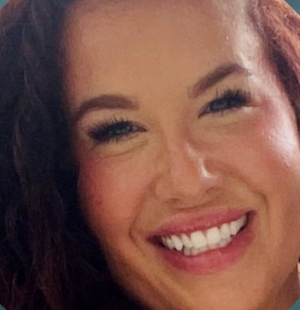 When Beth Collins joined the Sisters of St. Joseph Health and Wellness Foundation as the new Executive Director, she knew that the foundation could be doing more to support its nonprofit ecosystem. With a background in direct service, Beth remembered when she was on the other side of the funding relationship – sometimes spending hours writing lengthy application materials or digging up data to meet reporting requirements, all while juggling her never-ending to-do list. By aligning the values of Trust-Based Philanthropy to the virtues and mission of the Sisters of St. Joseph, she has catalyzed a shift toward redistributing power in its community partnerships.
When Beth Collins joined the Sisters of St. Joseph Health and Wellness Foundation as the new Executive Director, she knew that the foundation could be doing more to support its nonprofit ecosystem. With a background in direct service, Beth remembered when she was on the other side of the funding relationship – sometimes spending hours writing lengthy application materials or digging up data to meet reporting requirements, all while juggling her never-ending to-do list. By aligning the values of Trust-Based Philanthropy to the virtues and mission of the Sisters of St. Joseph, she has catalyzed a shift toward redistributing power in its community partnerships.
This power shift began when Beth started a conversation about values with the foundation board. By approaching the board with curiosity and bringing the voice of the community into the conversation, she set the tone for trust, openness, and an ongoing dialogue. The Foundation is now working toward fully embodying its values in its practices. The Sisters of St. Joseph have expanded their general operating support portfolio, shifted the bulk of the application process from applicants to the Foundation, replaced written reports with honest conversations, and created more opportunities for the public to provide feedback and engage in candid dialogue with the board. Focusing on only the essential information for applications and reporting has enabled staff to redirect their time and energy to develop wholehearted relationships with community partners. By starting with the why, Beth is leading the Foundation toward a clear vision for the how: “Trust Based Philanthropy is about humility – at Sisters of St. Joseph, we recognize that we are just one piece of the puzzle – and we are encouraging others to think outside of themselves.”
Offering Support Beyond the Check
Liberty Hill Foundation
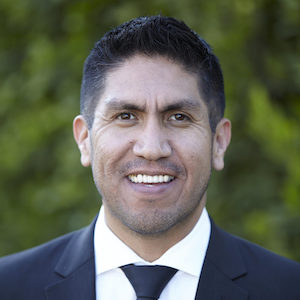 A community-funded foundation since day 1, Trust Based Philanthropy is at the core of the Liberty Hill Foundation. Centered on social justice campaigns, research, and policy initiatives designed to drive systemic change, Liberty Hill Foundation refers to itself as a "Laboratory for Social Change Philanthropy”. When Julio Marcial stepped into the role of Senior Vice President of Programs, he looked beyond the funding and considered the myriad of ways the foundation can support community partners beyond the check by connecting them to other funders and donors. As a member of several pooled funds in Los Angeles, Liberty Hill Foundation proactively seeks opportunities that will benefit their community partners. The Foundation has introduced many funders in their circle to Trust Based Philanthropy principles – this has sparked several conversations at other foundations serving Los Angeles county, several of which have since shifted their practices. Beyond private and public foundations, Marcial advocates for a push to Trust Based Philanthropy in California state funding agencies.
A community-funded foundation since day 1, Trust Based Philanthropy is at the core of the Liberty Hill Foundation. Centered on social justice campaigns, research, and policy initiatives designed to drive systemic change, Liberty Hill Foundation refers to itself as a "Laboratory for Social Change Philanthropy”. When Julio Marcial stepped into the role of Senior Vice President of Programs, he looked beyond the funding and considered the myriad of ways the foundation can support community partners beyond the check by connecting them to other funders and donors. As a member of several pooled funds in Los Angeles, Liberty Hill Foundation proactively seeks opportunities that will benefit their community partners. The Foundation has introduced many funders in their circle to Trust Based Philanthropy principles – this has sparked several conversations at other foundations serving Los Angeles county, several of which have since shifted their practices. Beyond private and public foundations, Marcial advocates for a push to Trust Based Philanthropy in California state funding agencies.
The Liberty Hill Foundation embraces itself as a fundraiser for its nonprofit partners and its responsibility for the Los Angeles community. The Foundation raises the funds and opens doors for nonprofits and then “steps out of the way,” says Julio. According to Julio, partnerships are the key to maximizing trust and impact in the community: “We can't do this without our partners, peers, and donors. We need to call each other out – and to call each other in.”
Leading with Trust, Transparency, and Responsiveness
Headwaters Foundation
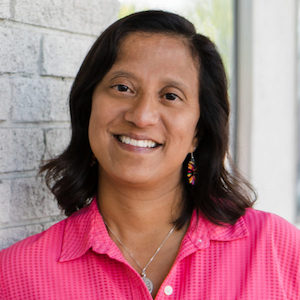 Headwaters Foundation is a health-conversion foundation working side by side with the community to achieve better outcomes towards a healthy and thriving Western Montana. Brenda Solorzano, CEO of Headwaters, has been at the helm of the foundation since its inception in 2017. With over 20 years of experience in traditional philanthropy, Brenda began asking big questions about standard philanthropic practices. Brenda is especially focused on tapping into the collective knowledge and experience of the community to create impactful systems. Early on in her tenure as CEO, Brenda shared her vision for Trust Based Philanthropy with the foundation’s board and they have supported her as she’s stewarded the foundation through its strategic planning process.
Headwaters Foundation is a health-conversion foundation working side by side with the community to achieve better outcomes towards a healthy and thriving Western Montana. Brenda Solorzano, CEO of Headwaters, has been at the helm of the foundation since its inception in 2017. With over 20 years of experience in traditional philanthropy, Brenda began asking big questions about standard philanthropic practices. Brenda is especially focused on tapping into the collective knowledge and experience of the community to create impactful systems. Early on in her tenure as CEO, Brenda shared her vision for Trust Based Philanthropy with the foundation’s board and they have supported her as she’s stewarded the foundation through its strategic planning process.
Community input and feedback was important to Brenda. With the board’s support, she took this a step further by engaging the community as co-creators and decision-makers. To accomplish this, Brenda invited 600 nonprofit representatives across the state to the table to share their thoughts. Brenda asked each person 2 questions: “If you were in my seat, what do you think the foundation should prioritize?” and “What’s the biggest challenge in your work?” By creating a space for open dialogue, Brenda took the pulse of the real challenges in Western Montana communities.
Soon after her introduction to Western Montana’s nonprofit sector, Brenda called on the community again to help design the foundation’s strategic focus. She hosted a series of public community meetings in each of Montana’s 15 counties. Headwaters facilitated a design-thinking process for members to discuss their challenges and co-create solutions. Two key strategies emerged: upstream systems and social change determinants prioritizing children and Indigenous populations.
Brenda engaged the community as decision-makers as Headwaters explored partner organizations for the foundation’s child thriving portfolio. The community nominated and voted on non-profit partners in a live meeting. This was a new approach and even some staff were nervous about the outcome. Headwaters proudly reports that a few years later, many of the organizations selected have grown to become blossoming collaborations. Grounded in Trust-Based principles since its inception, Headwaters is an exemplar of what it means to Do Good Better. Brenda says, “Trust Based Philanthropy is about starting from a place of trust.”
Co-Creating Goals by Soliciting and Acting on Feedback
T. Rowe Price Foundation
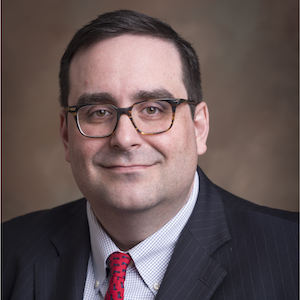 When John Brothers joined T. Rowe Price Foundation as President in 2015, the Foundation’s home in Baltimore was in the midst of social unrest following the tragic murder of Freddie Gray, a 25-year old Black man arrested over his legal possession of a knife and sustained injuries while being transported by the Baltimore Police. The T. Rowe Price Foundation recognized that it was a critical time to pause and listen to the Baltimore community. Within months of joining the Foundation, John Brothers and the Foundation team began an ongoing dialogue within Baltimore – in homes, places of worship, and community spaces. By leaning into the expertise and experience of community partners, John developed the T. Rowe Price’s Theory of Philanthropy, which mirrors principles to those similar to Trust-Based Philanthropy.
When John Brothers joined T. Rowe Price Foundation as President in 2015, the Foundation’s home in Baltimore was in the midst of social unrest following the tragic murder of Freddie Gray, a 25-year old Black man arrested over his legal possession of a knife and sustained injuries while being transported by the Baltimore Police. The T. Rowe Price Foundation recognized that it was a critical time to pause and listen to the Baltimore community. Within months of joining the Foundation, John Brothers and the Foundation team began an ongoing dialogue within Baltimore – in homes, places of worship, and community spaces. By leaning into the expertise and experience of community partners, John developed the T. Rowe Price’s Theory of Philanthropy, which mirrors principles to those similar to Trust-Based Philanthropy.
T. Rowe Price’s Theory of Philanthropy centers long-term impact by strategic investments in areas identified in partnership by those who live and work within the Baltimore community. The Foundation and community partners co-define a vision for success and community partners are trusted with the agency to make decisions in pursuit of shared goals. T. Rowe Price’s Theory of Philanthropy is considered a distinct model among other large corporate foundations. When asked how John managed to gain board consensus on this novel approach, he characterized the Theory of Philanthropy with a business metaphor: “People don’t buy stocks for an iPhone – they invest in Apple.” The Foundation focuses on supporting nonprofit organizations in a holistic way. By listening to the community early on, John shifted the Foundation’s approach from funding a variety of important, yet disconnected, programs to a co-creating strategic investment of capital and other support on more focused efforts that will have a lasting impact. To learn more please visit troweprice.com/foundation.
Doing Good Better, a partnership of the Council of New Jersey Grantmakers and the New Jersey Center for Nonprofits, is a community of funders and nonprofits taking action against the power imbalances and racial inequities in philanthropy, nonprofits, and government.
What comes after “strategic...?” If you said, “planning,” you’re not alone. And for many leaders of community foundations, especially small ones who don’t have the time or money for a big process, anxiety is the feeling that follows. If that’s the case, this guide is for you.
It invites you to test-drive some activities to bring your current program, operations and community leadership strategies into focus before you decide whether to create a plan or not. It helps you discover ongoing strategic practices and decide whether to keep them or not. If you already have done a strategic plan, and it is languishing on a shelf, this guide will help you refresh it.
PART A: Good Strategy Takes Practice (Not Just Planning)
PART B: Do Your Discovery
PART C: Jumpstart Your Strategy Narrative
PART D: Bring It Together
Looking To What’s Next
CNJG’s community foundation services (through the United Philanthropy Forum) breakdown into three categories:
1. a national listserv for CEOs
2. two in-person boot camp trainings
3. discount on the On-Line CF Express Training
National Listserv for Community Foundation CEOs
CNJG’s listserve for Community Foundation CEOs connects to a national listserv for the CEOs of community foundations. This active listserve allows community foundation CEOs to communicate easily via email with community foundation CEOs from across the country, to pose questions, engage in conversations and more. The service is being made available to our community foundations members as a benefit of your membership with CNJG and is operated by the Untied Philanthropy Forum, which is CNJG’s national network.
If you are interested in participating in this national community foundation listserve, please contact Craig Weinrich.
Community Foundation Boot Camps
The United Philanthropy Forum offers two or more Community Foundation Boot Camps a year that are made available to CNJG members at the member rate as a benefit of CNJG membership. The two-day Community Foundation Boot Camp program offers a comprehensive overview of the structure and operations of a community foundation. The program is an ideal in-depth introduction to community foundations for new community foundation staff, community foundation board members, or more experienced community foundation staff looking for a good refresher.
On-Line CF Express Training
The Forum is partnering with Kansas Association of Community Foundations (KACF) to offer a $400 discount on KACF’s On-Line CF Express Training. The online training and certificate program focuses on core essentials over a 15-module series that covers nearly every aspect of community foundation work: from asset development and quality grants programs design to fiduciary and policy matters. Plus, enjoy 24-hour-access to the easy-to-navigate short (5-15 min) modules in any order from the comfort of a home or an office, in private, or as a group training.
Watch the CF Express Training Promo Video and view a sample module (password: mod15) to learn more. To take advantage of the discount, sign-up at https://cfexpresstraining.com and enter discount code: Forum2018. You can also reference the following attachments for more details.
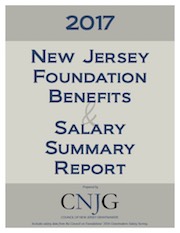
This weekly funder briefing webinar series welcomed New Jersey-based grantmakers along with national funders and provided an opportunity for grantmakers to hear from a wide range of nonprofit experts. This series started on March 13, 2025, less than a month after the first executive order was issued and continued through April 24, 2025. The recordings of each are below.
Immigration Webinar
Health Webinar
Environment Webinar
Education Webinar
Housing Webinar
Media & Journalism Webinar
Arts Webinar
Food is essential. But how often do you consider where your food comes from?This issue of What Funders Need to Know from the Washington Regional Association of Grantmakers explores the stages of the food system, from production all the way to disposal. Why is this important to philanthropy?
Because hunger, food insecurity, nutrition-related chronic disease, the health of resource lands and waterways, wages, and equal opportunity in the food economy all converge in our regional food system.
This paper explores community democracy as a cultural choice and a potential organizing system for philanthropy using stories that demonstrate its principles and practices, primarily growing from the experience of northern California communities. This experience offers a framework of principles and a beginning set of conclusions about how philanthropy can develop productive partnerships from the perspective of a place-based, community democracy.
In this arts briefing, Nadia Elokdah, Vice President and Program Director for Grantmakers in the Arts, will discuss the unique opportunity for arts grantmakers to support advocacy and influence policy through their funding decisions and why the arts should be included in decision-making processes. She will also cover the importance of arts funding in building narrative power and driving cultural change. Vanessa Ramalho, Director of External Relations of ArtPride New Jersey, will highlight the challenges faced by arts and cultural organizations in New Jersey and their intersections with community issues relating to the ongoing changes in federal policy. She will also share how ArtPride New Jersey is leveraging its statewide reach to develop collaborative advocacy strategies to influence and help shape policies informed by the needs and voices of the arts sector and the communities they serve. Vanessa will explore ways that funders might shift their focus and priorities to better meet the needs of organizations that are navigating increasing financial uncertainty as a result of federal policy changes.
Nadia Elokdah is an urbanist and design strategist with more than a decade working at the intersection of public systems and cultural practice. She currently serves as Vice President & Director of Programs at GIA. Most recently she served as special projects manager with the New York City Department of Cultural Affairs coordinating the City’s monuments commission. Prior, she served as coordinator in the development of the City’s first cultural plan, CreateNYC, in which she coordinated and led hundreds of engagements with a broad cross-section of the public, as well collaborating in the writing and production of the plan. She is devoted to civic engagement through culturally responsible, inclusive, and equitable design practice, exemplified in collaborations with the International Design Clinic, in.site collaborative, and Monuments Lab. Nadia is a trained architect and designer, researcher, professor, and published author, including Identity Crisis, a cultural exploration of urban planning through the hammam. She currently serves as steering committee member of the Women of Color in the Arts (WOCA) Non-Black POC Solidarity! into Action Committee, National Coalition for Arts Preparedness & Emergency Response (NCAPER) Programming Working Group, and an advisory board member for Unsettled.
Vanessa Ramalho, Director of External Relations, supports ArtPride’s advocacy and government affairs work, leading efforts to move forward legislative priorities that support the sustainability of the arts in New Jersey. Vanessa also builds relationships with constituents throughout the state — from community members to arts organizations, and local and state representatives — to support the cultivation of a thriving arts ecosystem. With nearly 20 years of experience in the nonprofit arts & cultural sector, Vanessa has led community education, fundraising, and grassroots advocacy projects across a range of organizations, including the Sadie Nash Leadership Project, the Asian Pacific Islander Coalition on HIV/AIDS (APICHA), Project KISS of New York Presbyterian Hospital, The Princeton Ballet School, the Asian Arts Initiative, and the Center for Babaylan Studies.
Cost: Free for CNJG Members; $75 for Non Member Grantmakers
This program is only open to staff and trustees from grantmaking organizations.
Programs in this Series:
March 13: Making Sense of Federal Policy: Understanding What it Means for NJ: Immigration
March 20: Making Sense of Federal Policy: Understanding What it Means for NJ: Health
March 27: Making Sense of Federal Policy: Understanding What it Means for NJ: Environment
April 3: Making Sense of Federal Policy: Understanding What it Means for NJ: Education
April 10: Making Sense of Federal Policy: Understanding What it Means for NJ: Housing
April 17: Making Sense of Federal Policy: Understanding What it Means for NJ: Media & Journalism
April 24: Making Sense of Federal Policy: Understanding What it Means for NJ: Arts
Webinar Video
